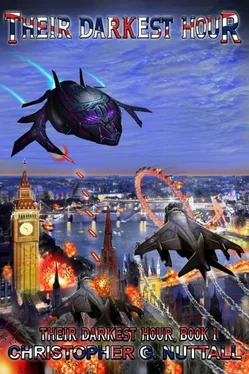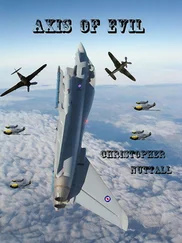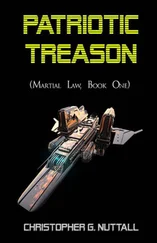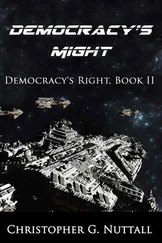He heard the sound of the animals protesting as the vehicle skimmed past them and back down onto the road. A pair of young humans — females, judging from their increased frontal development — jumped back in shock, clearly not having heard their approach until it was far too late. Gra’sha resisted the temptation to wave in their direction, knowing that they would probably be planting bombs or taking shots at him in the next few years. At least this bunch of humans seemed reluctant to send their young to war. There were tales of human children carrying bombs right up to patrols in some other parts of the world, although they could be just rumours. Rumour-spreading was officially forbidden, which didn’t stop troopers from exchanging rumours and survival tips at every opportunity. Even the newcomers from the homeworld had finally learned to listen to those who had landed on Earth with the first invasion force. They’d survived the worst that the humans could throw at them.
Two aircraft flew overhead, matching course with the armoured vehicle for a few moments. It always made Gra’sha feel better to know that there were aircraft overhead, watching and waiting to provide support if they ran into trouble. They were supposed to run a random patrol, but there were only a handful of possible routes from the base they could run and the humans knew them all. Even if they didn’t run into an ambush this time, they were likely to run into one the next time… and some human ambushes had been nasty .
He was still watching the environment when he saw a single naked Eridiani standing by the side of the road. For a moment, Gra’sha refused to believe what he was seeing — and then he connected it with the missing intelligence officer the Command Triad had warned them to look out for. It was just typical of intelligence to insist that the troopers on the ground poured out all the stops for a missing intelligence officer — not that he would ever dare say that out loud, of course. Intelligence officers tended to spend more time watching their subordinates for disloyalty rather than monitoring their human enemies. Absently, he wondered if that were true of the human intelligence organisations too. Probably. Certain things were universal, even among the non-humanoid race that had been the State’s first major foe.
The vehicle pulled to a halt near the missing officer and Gra’sha dismounted, quickly. It was quite possible that the humans were using their captive as the bait in a trap, although quite what they hoped to gain from it was beyond him. The intelligence officer seemed rather disorientated as Gra’sha reached him, but looked very relieved to see a friendly face. How had the humans treated him while he was their captive? They did all kinds of horrible things to their fellows, according to the briefings they’d received — what would they do to a captive trooper, let alone someone who could actually tell them what they needed to know.
“It’s all right,” he said, as the intelligence officer staggered towards the vehicle. It looked as though the humans had just dumped him, presumably some distance from their base. They’d take a look at the orbital coverage and see if they could trace the humans back to where they’d kept their captive. “You’re safe now.”
He helped the captive into the vehicle and remounted, hefting his weapon as he surveyed the horizon for human threats. Somehow, he was sure that none would materialise. The humans had wanted to give them the captive — they wouldn’t blow them up now. He smiled as the vehicle hummed back into life and started heading straight back to the base. Whatever the humans had had in mind, there was a good chance of promotion or a bonus from their superiors. And that would give the small crew a chance with the females when mating season rolled around.
And if they managed to trace the humans back to their lair, they might just be able to decapitate the resistance in a single blow.
London
United Kingdom, Day 47
“Maz’Bak’s debriefing has been completed,” the intelligence officer informed Oheghizh. “The humans treated him fairly well by their standards. They did, however, interrogate him quite extensively.”
“And as an intelligence officer he had a great deal to tell them,” Oheghizh said. Curiosity was not encouraged by the State, but intelligence officers were an exception to that rule. Indeed, rather than stamping on excessively curious youths, the intelligence service preferred to recruit them. Their curiosity could be put to work on behalf of the State. “What did he tell them, precisely.”
“It’s all in the report,” the intelligence officer said. “They know a great deal more about us than they knew before they raided the detention centre.”
Oheghizh skimmed through the report, barely keeping himself from swearing out loud. The humans weren’t supposed to know anything about any of the other races out among the stars — but now they did, along with far too much information on the galactic geopolitics that had led the State to Earth. And they knew how the command network on Earth was organised, the location and identities of the Command Triad… anywhere else, the information would have had a disastrous impact. If the humans had climbed into space, like any halfway sane race, it would have given them a decisive advantage. Instead, they were still trapped on the bottom of Earth’s gravity well.
The Command Triad was not going to be pleased. Nor was the State, when superior authority heard about it. Earth had already soaked up more resources and combat power than anyone had anticipated, which meant that reinforcements had to be diverted from other planets. The human military personnel they’d taken off-planet and sent to disputed worlds might redress the balance, but how could they be trusted completely? They weren’t even mercenaries; they’d been pressed into service. And they’d know it.
“On the other hand, we did manage to trace the humans back to their lair,” the intelligence officer added. “They must have a fairly major command post of their own hidden in the general area. If we wait a couple of days, and then attack… we might be able to cripple the human resistance.”
Oheghizh nodded, sourly. In truth, he wasn’t sure that it would do more than hamper the human resistance organisation. The American command and control structure had been shattered by the opening blows of the invasion, but they were somehow still managing to mount a creditable challenge to the State. Intelligence was fairly sure that there was no overall commanding authority, which raised worrying questions about how far the Americans took the concept of leaderless resistance. It was an idea alien to the State.
“Prepare an assault force,” he ordered, finally. “And have the former captive shipped to orbit for a more extensive debriefing. I want to know everything he told his captors — and I’m sure that the Command Triad will too.”
He watched the intelligence officer scuttle out of his office, and then he turned to look out over London. The riots that had threatened their grip on the city had died away after the BBC had reported that the alien captive was safe and well, back with his own people, but they’d come alarmingly close to overwhelming their ability to govern the city. Part of him was tempted to just pull out and leave the humans to slaughter each other, yet he knew they needed as much of the local economy functioning as possible. The registry was already being used to earmark humans for clean-up efforts — and if they refused to work, they would starve.
And if they did manage to cripple the human resistance, perhaps they could bring the whole campaign to a successful conclusion.
Читать дальше












